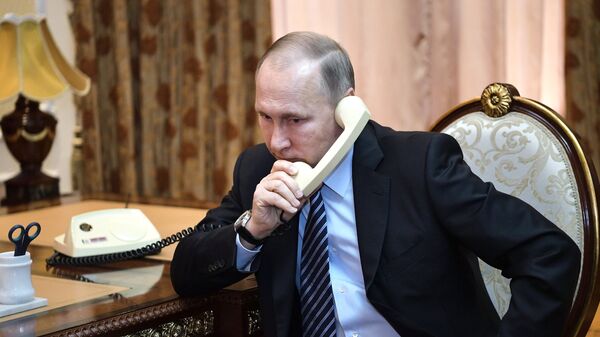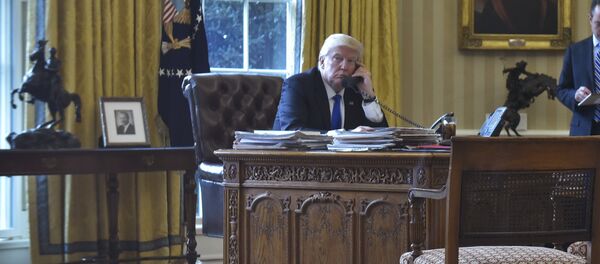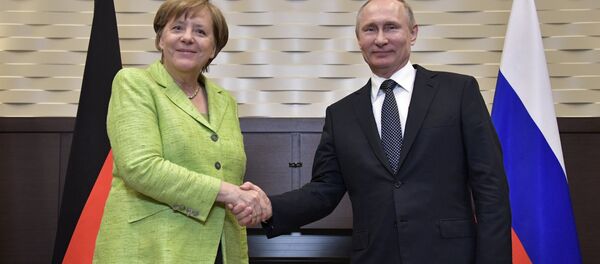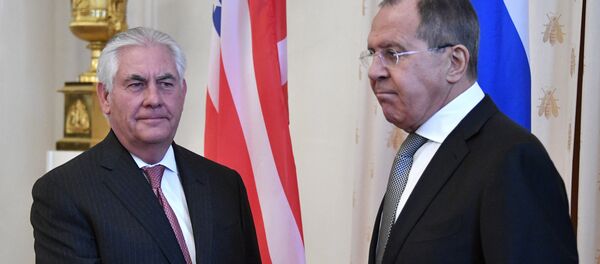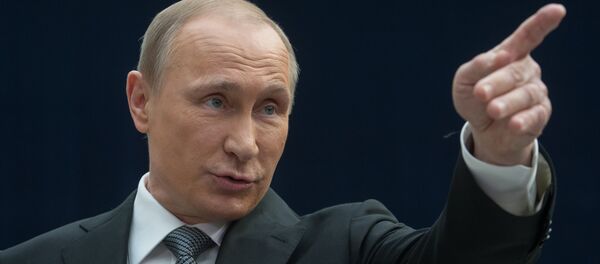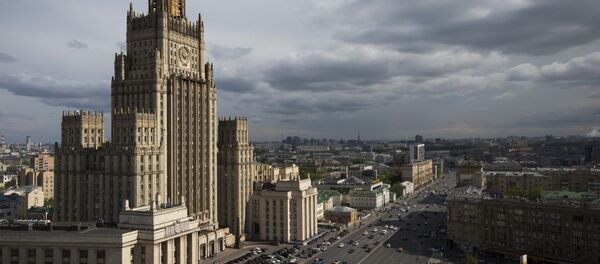Shortly after Tuesday's talks, the Kremlin's press service offered details of the phone call, saying that the leaders focused on the prospects of coordinating Russian and US actions in the fight against terrorism in Syria. The press service added that "a number of [other] important issues of cooperation" were also discussed, including the situation on the Korean peninsula, and the possibility of coordinating the Russian and US positions on the issue.
Finally, and perhaps most importantly, the Kremlin's press service confirmed that the two leaders had expressed the hope that they might hold their first-ever face-to-face meeting on July 7-8, on the sidelines of the G20 summit in Hamburg, Germany.
Tuesday's call was reported to have lasted about a half-hour, and was the third time Putin and Trump have spoken on the phone since the American president's inauguration in January.
Speaking to reporters after the event, Yuri Ushakov, an aide to the Russian president, emphasized that "both presidents spoke in favor" of meeting in Hamburg, adding that the Russian side characterized the conversation as "businesslike" and "positive."
Relations between the two countries went sour on April 6, however, after Trump ordered the launch of 59 Tomahawk cruise missiles against the Shayrat air base in Syria, following unsubstantiated claims that President Bashar Assad's forces used chemical weapons in Idlib province two days earlier. Moscow condemned the strikes as a blatant violation of international law. Putin characterized the Idlib attack as an obvious false flag against Damascus by the jihadists.

Russia and the US have not been able to line up their positions on other issues, either, including the ongoing crisis in Ukraine, the deployment and strengthening of NATO forces on Russia's borders, and US missile defenses in Eastern Europe and Northeast Asia.
Speaking to Radio Sputnik, political scientist Alexei Panin, director of the Moscow office of the Urus Advisory, said that he might characterize the telephone call as an exercise in the "synchronization of watches," i.e. ensuring Moscow and Washington are on the same page when it comes to each other's positions.
"If one were to list the problems between our countries in a more or less detailed manner, this would take about half an hour," Panin noted. "It's obvious that discussing these issues, taking some kind of common stand on them, is not possible in such a short amount of time," he added.
In the observer's view, much of the international agenda revolves around the Middle East generally, and the Syrian issue specifically. Whether it be German Chancellor Angela Merkel's recent visit to Moscow, Putin's meeting with Turkish President Recep Tayyip Erdogan on Wednesday, or the Putin-Trump phone call, the Syrian problem seems to be a central point of contact between Russia's interests, and those of the US, Germany and Turkey.
"Unfortunately, it can be said that the figure of Trump is subject to a certain level of manipulation. And while he does not resolve this problem, I'm afraid that breakthrough achievements will remain unlikely," the expert concluded.
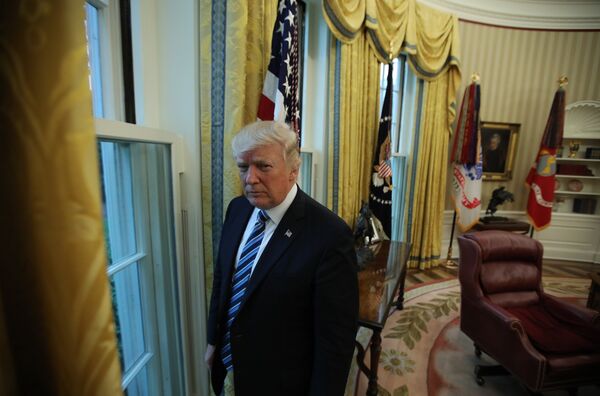
Vladimir Batyuk, a professor of international politics at the Moscow-based Higher School of Economics, and an expert at the Russian Council on International Affairs, was a bit more optimistic in his assessment. Speaking to RIA Novosti, the academic said that if the phone call accomplished one thing – it was to show that Moscow and Washington are intent on promoting constructive dialogue, rather than engaging in a new Cold War.
"The very fact that this conversation took place is a good sign, in my opinion," Batyuk noted. "It is a sign that contacts between the leaders of the two great powers are continuing. The fact that there was an emphasis placed in the course of the conversation on cooperation — in the fight against international terrorism, in settling the crisis in Syria, in settling the dangerous situation on the Korean peninsula – all of this is evidence that Moscow and Washington are committed to dialogue, to cooperation, and not to some new Cold War."
"It must be remembered that the American establishment is presently dead-set against Russia; this talk about 'Russian hackers' continues. In these circumstances, even the most routine contacts with the Russian side will be perceived as 'treason' by some in Washington, and in this atmosphere it is very difficult to achieve any real progress."
Batyuk recalled that at the moment there are simply no contacts between the Russian and US legislative organs, with the situation worsening thanks in large part to the extremely biased anti-Russian attitudes in the US media. This too, not just discussions at the highest level, must change for any significant improvement in relations," the academic stressed.
"Apparently, the Pentagon and the whole aggressively-tuned part of the American political class have been convinced that spitting Tomahawks down on sovereign Syria and trying a 'cowboy assault' on North Korea will not lead to a solution of these problems. It seems to be becoming clear to Trump that a confrontation with Russia on these issues will harm him as a politician."
Accordingly, Nenashov suggested that "perhaps [Tuesday's] conversation will be the start of the building of partner or even allied relations with our country, as it was during the years of the common struggle against the Nazis [during World War II]."
After all, Nenashov stressed, only the combined strength of Russia and the US will enable them to defeat international terrorism. In any case, he added, just as it was over seventy years ago during the Second World War, trying to build any kind of positive international order without Russia's involvement will be impossible.
